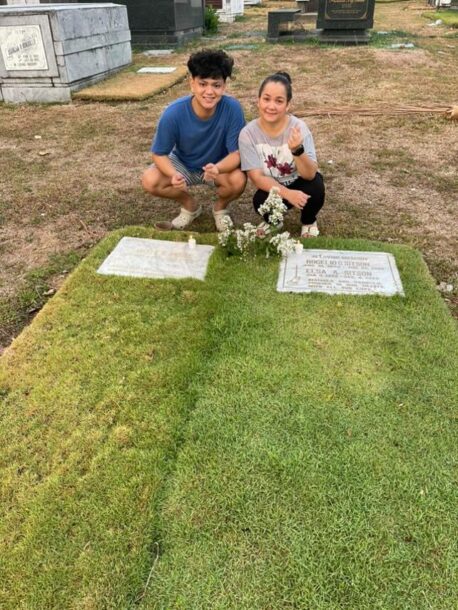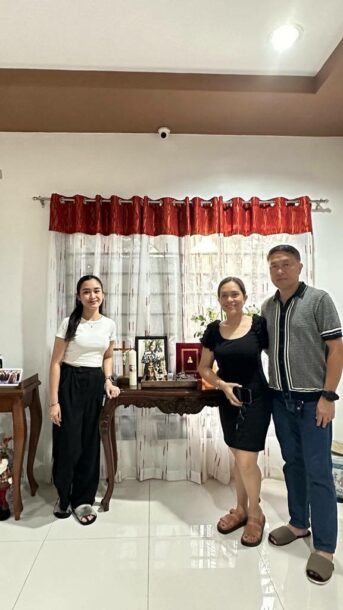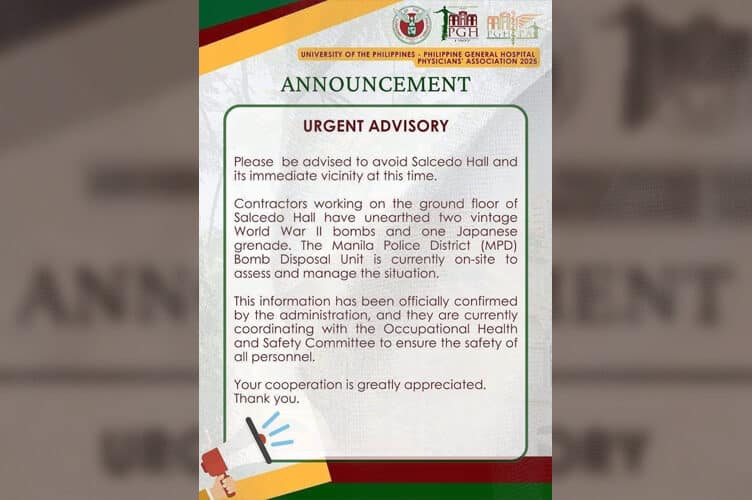FILIPINO tradition of commemorating the deceased, especially on “Undas,” or All Saints’ and All Souls’ Days, is a significant cultural practice that emphasizes the importance of familial relationships and spiritual beliefs.
The habit of visiting cemeteries indicates a deeply ingrained conviction that the deceased continue to play a role in the lives of the living, reinforcing the idea that love transcends death, which is emphasized by traditions.
While Undas is a yearly event dedicated to visiting cemeteries and honoring the lives of lost loved ones, the significance of these visits extends far beyond the day itself.
In an interview with a few Gen Zs, they told republicasia how important it is for them to see their deceased loved ones even after Undas, as evidenced by their desire to establish a tradition and find emotional peace.
Why is it important?
In an interview with republicasia, Kaitlin Kibtiani, a 22-year-old Zamboanga native, discussed how she honors her deceased loved ones whether before or after Undas, proving that it is an absolute must for her.
“Undas isn’t the only time when they should be remembered or visited, especially when you think about all the other days of the year that you can visit them,” Kibtiani said.
“There doesn’t need to be a special occasion just to light a candle and offer a prayers. Visiting beyond Undas is also for those who aren’t able to go home to their provinces during this time.”
“I, myself, will not be able to go home this Undas to visit my grandma. Thinking about it makes me a bit emotional as no immediate family member is going to be there for her, but I know that I can always talk to her and offer prayers anywhere I am,” she added.
Ann Tiongson believes that continuing to see her departed family members after Undas is as vital as anything else since it serves as a meaningful reminder to her of the love and memories of her deceased loved ones.

Photo Courtesy: Ann Tiongson
“These visits help comfort our feelings of longing and loss, reinforcing the idea that our loved ones are still a part of our lives in spirit,” the 22-year-old Tiongson said.
“This ongoing connection can alleviate feelings of isolation that often accompany grief, reminding us that it is natural to miss those who have passed away.”
“In this way, the act of visiting transforms into a ritual of remembrance that fosters emotional healing,” she added.
It is a tradition
CA Sitson, a 24-year-old news writer, visits his deceased family members on a monthly basis to offer them respect. However, when it comes to Undas, their family typically visits the cemetery earlier or later.
“A lot of influence has been poured by our cultural belief when it comes to the significance of paying respect to our dearly departed every Undas,” said Sitson.
“Living in this country, the only Catholic population in SouthEast Asia, it is a big deal for every family to celebrate Undas annually. It’s really also a special gathering before Christmas,” he added.

Photo Courtesy: CA Sitson
Kibtiani learned many of her customs and traditions from her late grandmother. Now, she has a way to carry on the practices she learned from her and continue this heritage.
“When my grandma was still with us, we would visit her siblings every Sunday afternoon. It would be accompanied with merienda afterwards,” Kibtiani said.
“I guess because this “tradition” is what I’ve been used to, if my family and I were living back home, we would probably be doing the same.”
“All my years growing up, I’ve really just associated Sundays with family, church, prayers, and forest lake — a memorial park in our province. This association is greatly influenced by my lola, which is why I feel the need to fulfill it for her as well,” she added.
Turning grief to understanding
Visiting someone who has passed on is not a simple process, especially for those who are still grieving. However, by visiting them more frequently, these Gen Zs learnt that grief may still lead to understanding.
“Although I do believe that we can talk to those who passed anywhere we are, visiting them in their final resting place just has a different sense to it, other than having a more intimate and personal connection with them,” Kibtiani explained.
“Personally, I think that it also helps in letting the reality of it sink in. As someone who is still grieving, I can say that it helps in allowing me to release pent up emotions.”
“It also helps me navigate through my grief with my mom and brother who feel the same way, a sense that I’m not alone. Other than this, it’s also a time for reflection – how all the regrets, sadness, and pain can turn into relief and understanding,” she added.

Photo Courtesy: Kaitlin Kibtiani
Meanwhile, Tiongson and Sitson gradually experience peace in their hearts and minds after visiting their lost loved ones, despite the fact that they are still trying to find a way out of their pain.
“It allows individuals to create a safe space to process their emotions, facilitating the recognition and acknowledgment of grief,” Tiongson said, relating to what Kibtiani is also going through.
“This practice not only honors the memory of those who have passed but also supports those still grieving by offering them a communal space to share their experiences and feelings,” she added.
“It gives support in a form of serenity. That in the end, we will all be ashes. But first, let’s live this world while we can and afterwards, one day we can share eternity with our departed loved ones,” said Sitson.
The value of visiting deceased loved ones in the Philippines goes far beyond the observance of Undas. These visits represent a complex tapestry of cultural, emotional, and spiritual importance that is profoundly embedded in Filipino identity.
Death, according to the experiences related by these Generation Zs, does not break the links of love and remembrance; rather, it supports the belief that people who have passed away may be gone physically, but they are never lost in the hearts and minds of their loved ones.
How useful was this post?
Click on a star to rate it!
Average rating 0 / 5. Vote count: 0
No votes so far! Be the first to rate this post.
We are sorry that this post was not useful for you!
Let us improve this post!
Tell us how we can improve this post?









